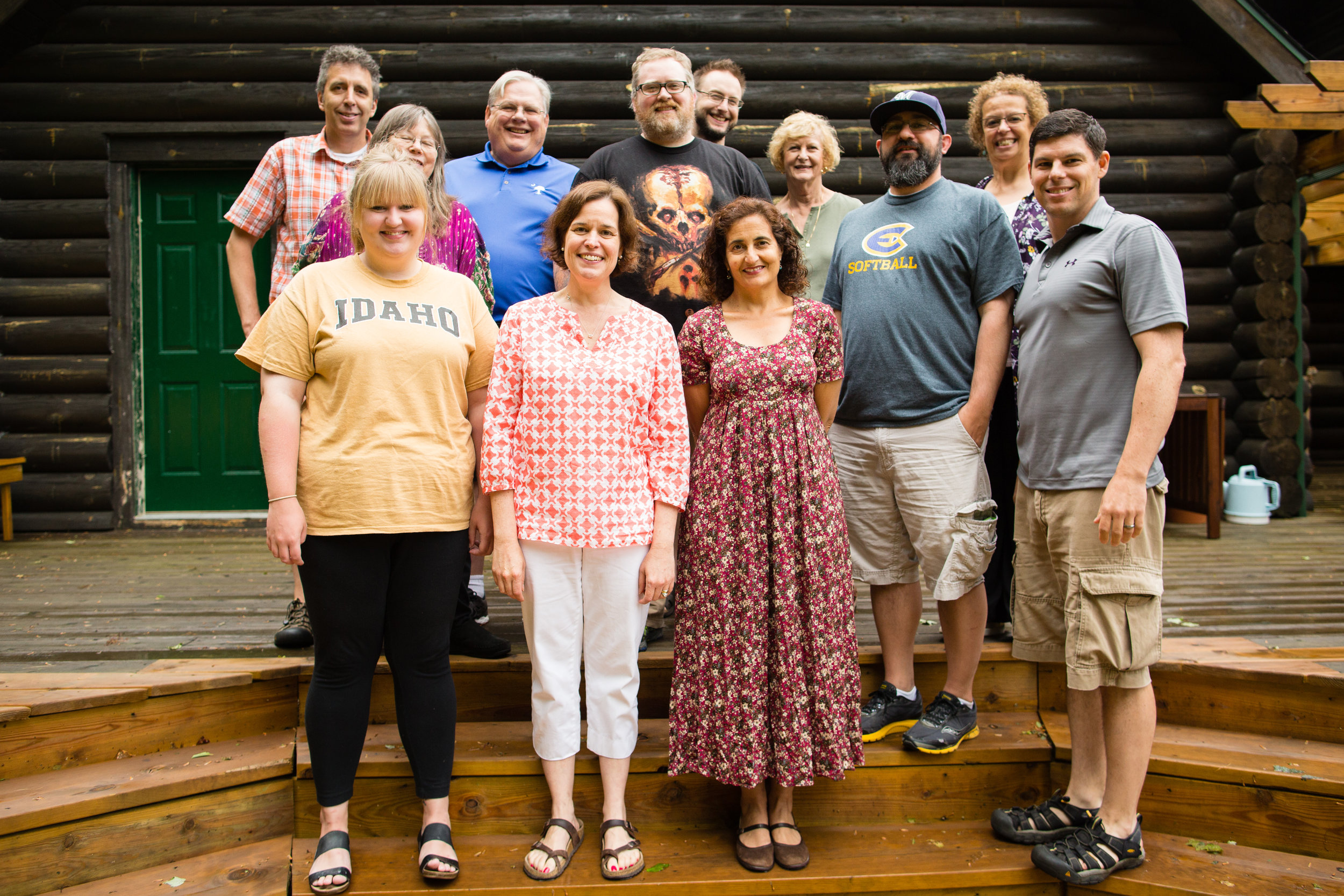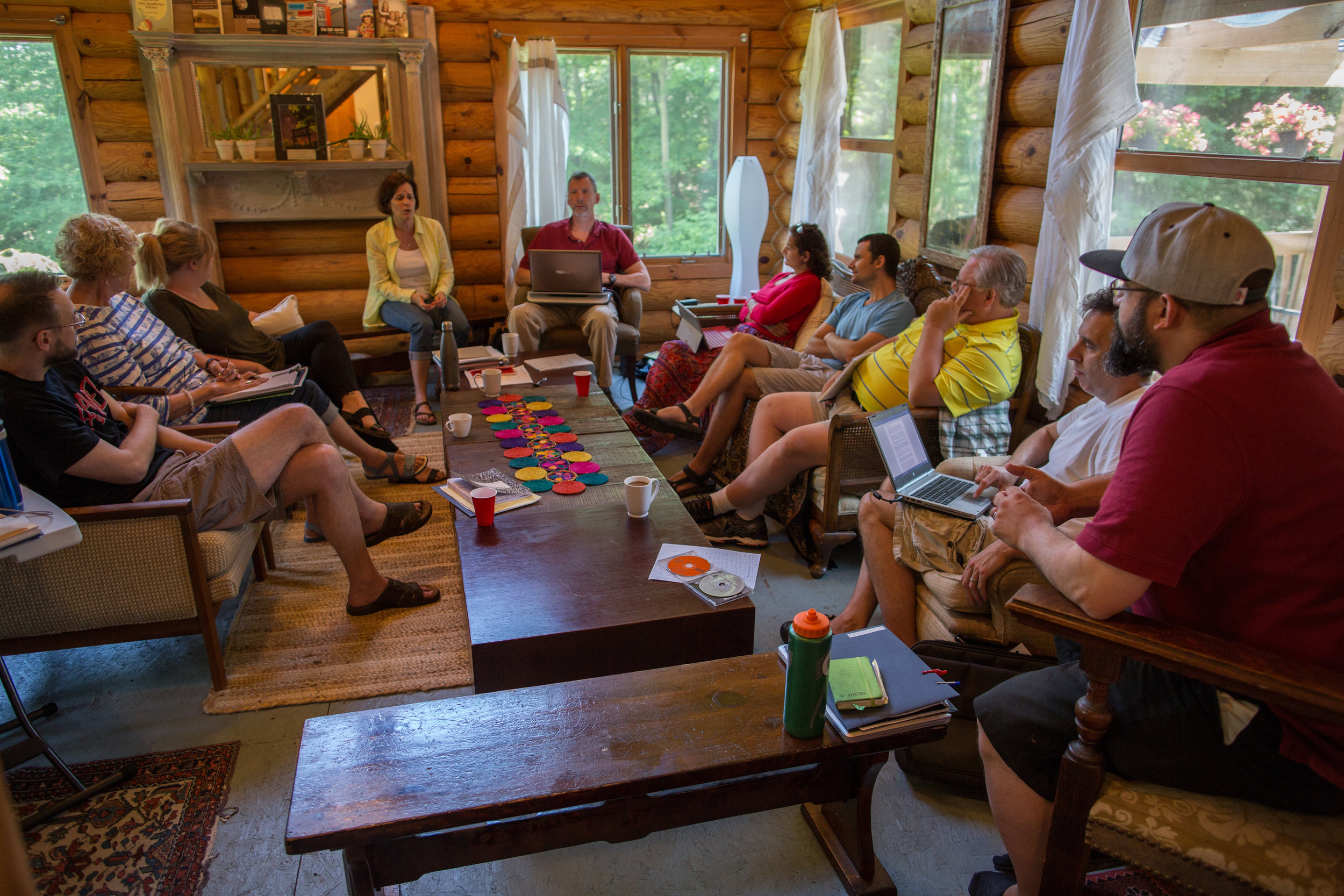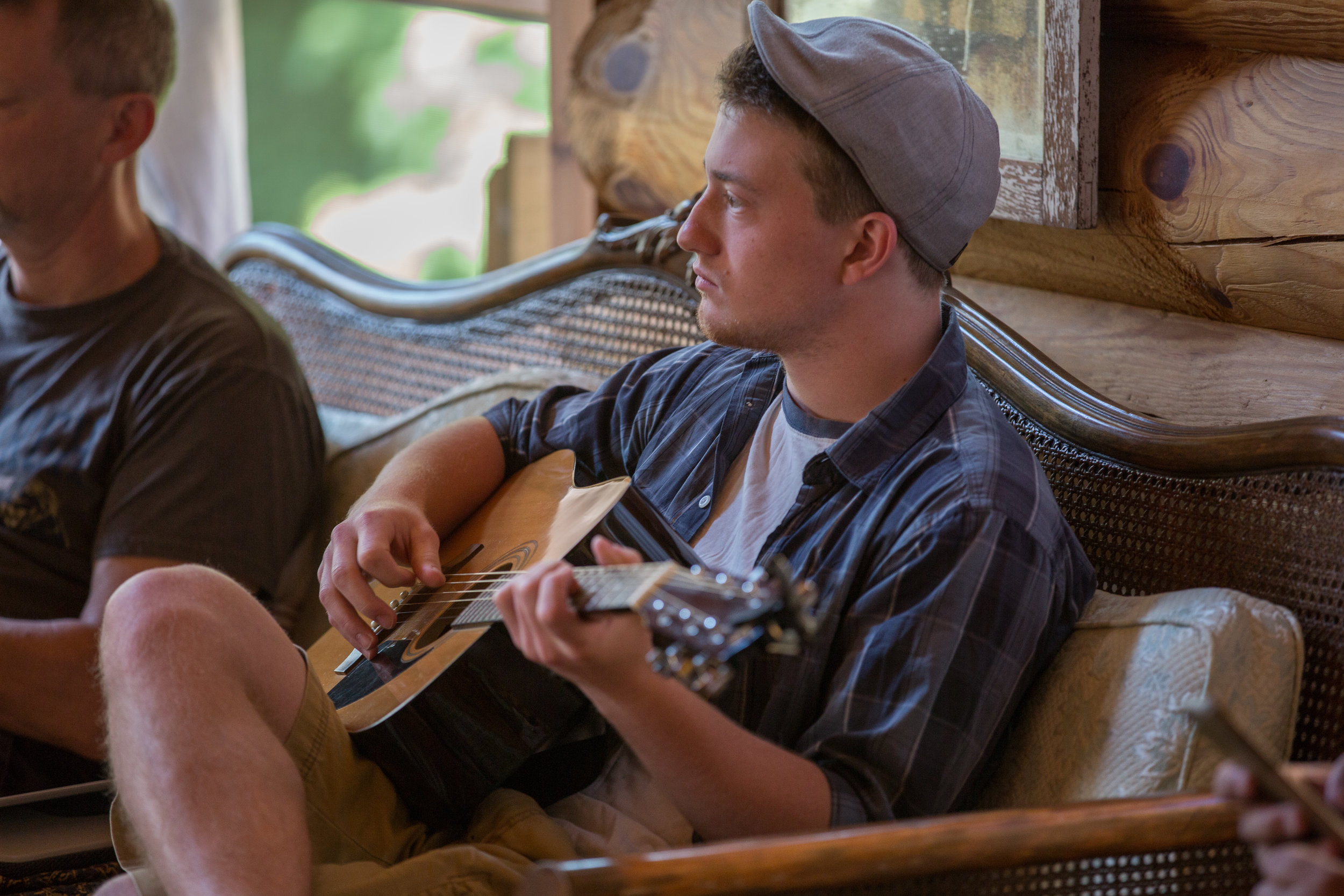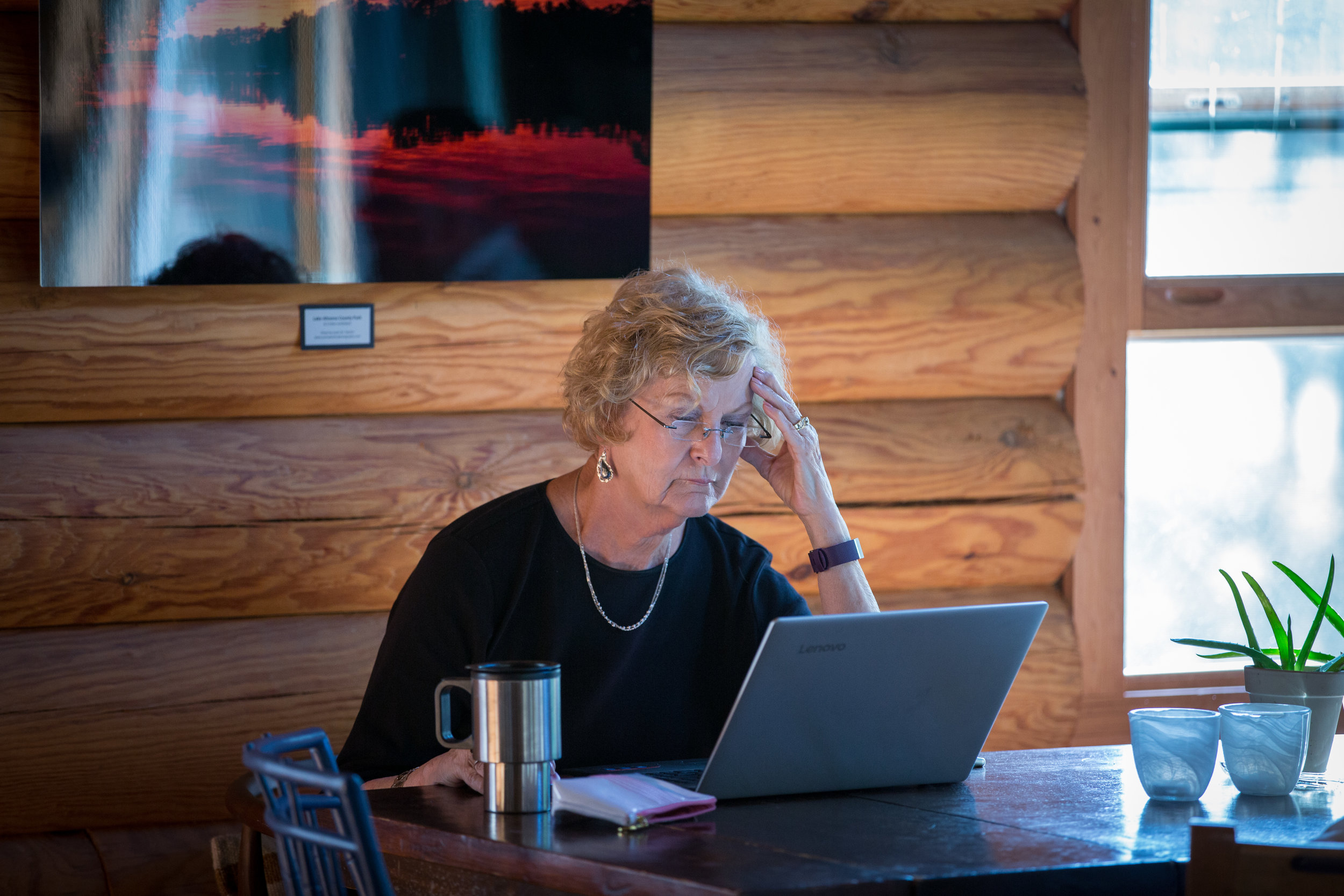by Geoff Carter
We heard the river before we saw it. Max Garland took us on a trip to Big Falls County Park in Fall Creek the second day of his poetry residency at Cirenaica. In a line, we trekked down a dirt trail to the waterfalls. The river splintered upon boulders and fell, splashing down until it collected and continued downstream.
A few minutes earlier, the ten writers, Max, and I drove up the road to explore nature in its most powerful. The rust water raging over bedrock, green hills stretching on the water’s sides, and us on its shore. Pads and pens spread out as fingers captured words from the air. We breathed inspiration from the air. Poems that would be read the next day, and cherished for much longer.
“There is a unifying power in metaphor that moves through us like water,” Max said. Through metaphor we see how everything can be and is connected; we see how everything is related. While we sat out on the shore in the middle of a waterfall, we were connected to everything.
It’s the world that inspires our words, and our words that reveal the world.
The first night of the residency, Max brought a cake to celebrate Henry David Thoreau’s 200th birthday. Through the weekend, we found ourselves sauntering through the Wisconsin wilderness as Thoreau did all over the country. His work inspired our explorations, our conversations, and our writing. We found ourselves reveling in Thoreau’s words, finding them fresh like the outside air. The more we read his work, the more we wanted to join in his journey of capturing nature.
While the work brought us together, it’s our moments together we’ll remember most. How we sang to Thoreau’s ghost and enjoyed his cake. The glorious meals Chef Brent Halverson concocted for us. Our adventures in morning coffees and creamers. When Max and special guest Dr. Joel Pace strummed and sang around our fire. And Max’s newfound Monarch caterpillar plucked from Big Falls. Or the conversations in circles that continued till late because sleep or writing or the world could wait.
One of the best things about coming to Cirenaica is the ability to forget the world. We are alone out here with bird songs, emerald trees, wandering breezes, and endless orange embers still burning. Just how Thoreau escaped the world on his walks through the woods, we can escape our worlds here. Guild Director BJ revealed his plan to save the ashes from the season’s final fire for starting the first fire next summer. Every summer on these grounds can be connected, just like we can connect ourselves with the places that best shape our words.
On our final night together we read our new and old work aloud for an audience. We escaped the world for a while and stood outside, amid the steaming air and twilight sky. After a weekend of working and reshaping our thinking about the world, we came together to flow through Cirenaica like the Eau Claire River collecting itself after rolling over Big Falls.








































